RUSI: Review of CT and P/CVE Activity Effectiveness
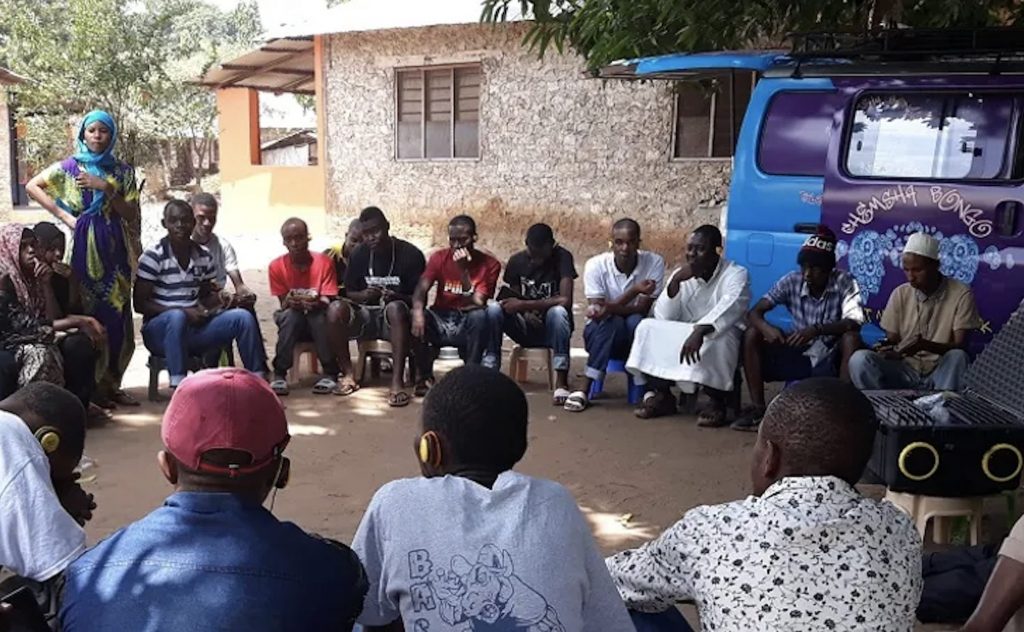
We provided a systematic review of the effectiveness of counterterrorism and preventing and countering violent extremism activities, with a focus on youth engagement, reintegration and capacity building. RUSI’s Terrorism and Conflict Research Group conducted a systematic literature review, funded by the Dutch Ministry of Foreign Affairs (MFA), looking at the effectiveness of counterterrorism (CT) and […]
RUSI Prevention Project

A comprehensive research programme on the effectiveness of countering violent extremism projects Over the past two years, RUSI’s Terrorism and Conflict group has conducted extensive research on the effectiveness of global preventing and countering violent extremism (P/CVE) interventions. The Prevention Project aims to analyse P/CVE interventions to look at ‘what can work and what has not […]
When is Conventional Wisdom Wise? Testing the Assumptions Behind Preventing Violent Extremism

Prevention of violent extremism is more important now than it was before the COVID-19 pandemic. In order to prevent radicalization and extremist sentiments, a clear understanding of the causes of support for terrorism and violent extremism is needed. While local and regional studies exist, there had not been a global quantitative analysis investigating the most prominent factors […]
Misogyny: the Extremist Gateway?
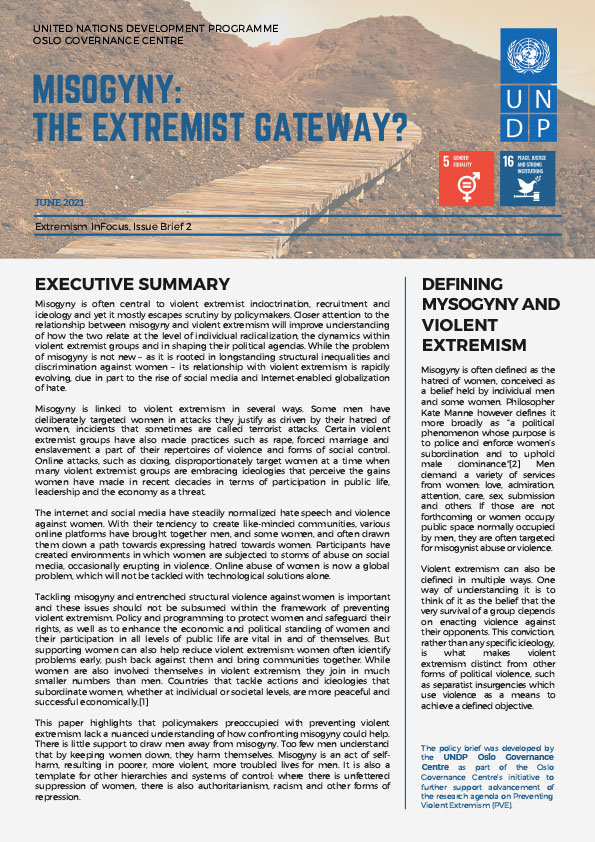
Misogyny often lies at the heart of violent extremism and is central to indoctrination, recruitment, and ideology – yet it frequently escapes scrutiny. Societies that tackle misogyny are more peaceful and economically successful, and confronting it is essential for those engaged in PVE and addressing other forms of conflict. But extremist groups that gain power […]
Toward New Policies for the Climate Change and Violent Extremism Nexus in Africa

As part of the UNDP Oslo Governance Centre’s (OGC) initiative to further support advancement of the research agenda on Preventing Violent Extremism (PVE), the OGC partnered with the Regional PVE Project in Africa to assess Climate Change and Violent Extremism in Africa. The policy brief draws upon interviews and literature regarding climate security, violent extremism, […]
New Models for Deploying Counterspeech: Measuring Behavioral Change and Sentiment Analysis

The counterterrorism and CVE community has long questioned the effectiveness of counterspeech in countering extremism online. While most evaluation of counterspeech rely on limited reach and engagement metrics, this paper explores two models to better measure behavioral change and sentiment analysis. Conducted via partnerships between Facebook and counter-extremism NGOs, the first model uses A/B testing […]
Global Internet Forum to Counter Terrorism
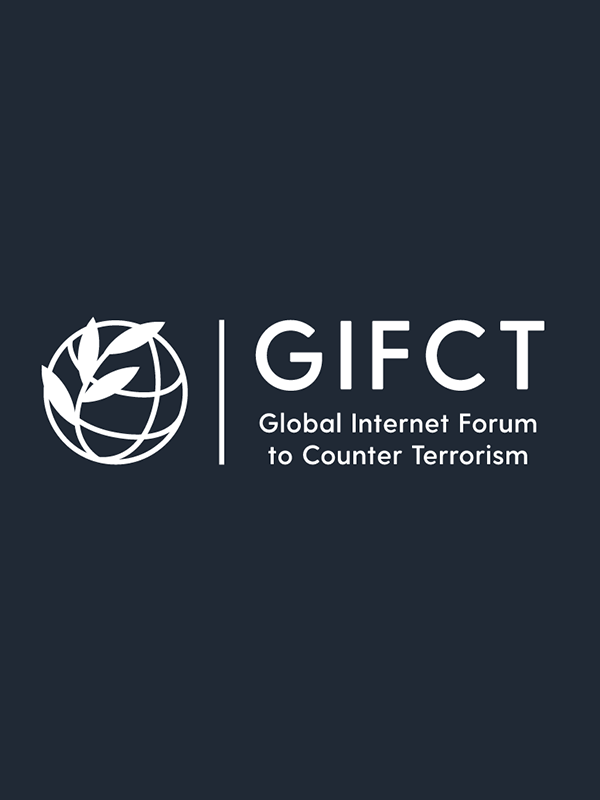
This document serves as a guide for civil society groups, academic researchers, governments, and other tech companies wanting to know more about the resources and information that GIFCT member companies make available about their efforts to counter terrorist and violent extremist activity and tools developed to combat forms of online radicalization. In each section we […]
Global Network on Extremism and Technology

Our research design acknowledges that the literature (whether academic or practitioner-based) on violent extremism is vast, richly populated and broadly conceived. The purpose of GNET is not to replicate this. Whilst we build on this body of work, the goal of GNET is to empower experts to probe and explore contentious issues of broad social […]
Assessing Progress Made, and the Future of Development Approaches to Preventing Violent Extremism (PVE)
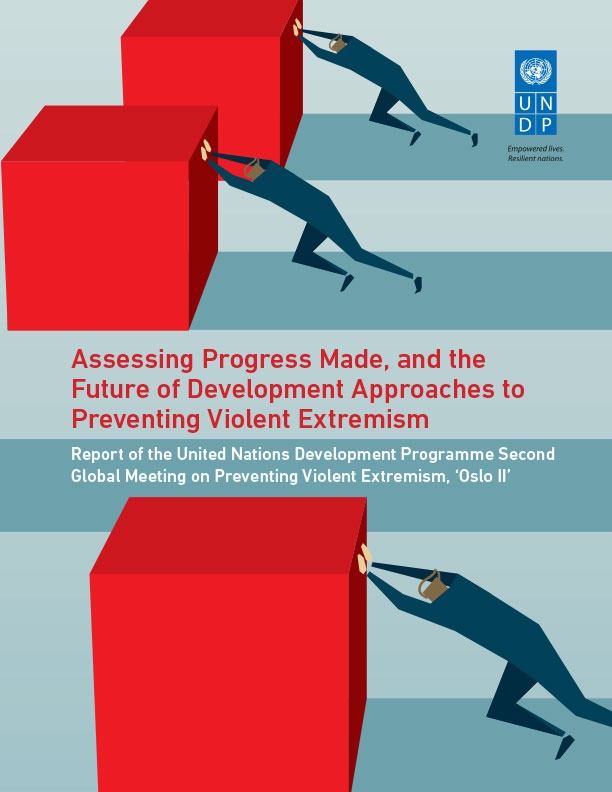
Report of the United Nations Development Programme Second Global Meeting on Preventing Violent Extremism, ‘Oslo II’ This report provides an analytical reflection of the content, observations, and recommendations of the second global meeting on preventing violent extremism (Oslo II: Assessing Progress Made and the Future of Development Approaches to Preventing Violent Extremism), held on 23-24 […]
Preventing Violent Extremism through Promoting Inclusive Development, Tolerance and Respect for Diversity
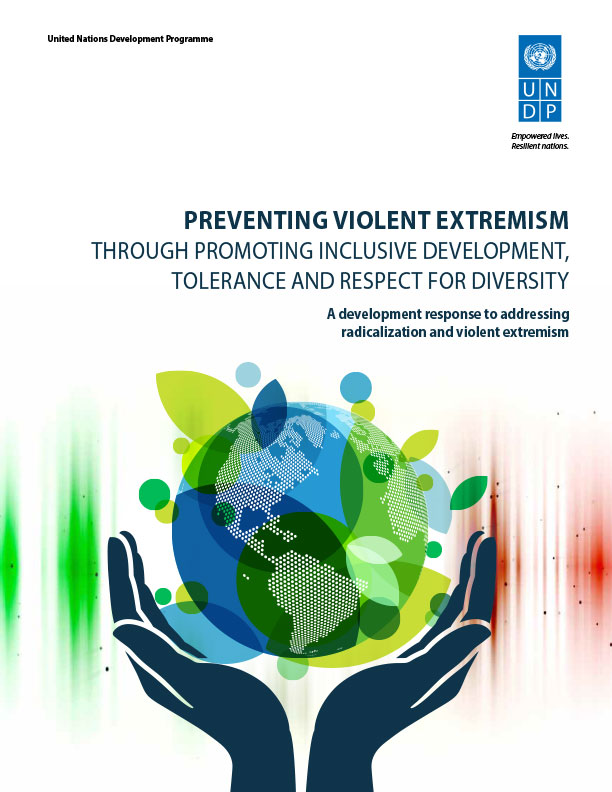
In recent years, the world has witnessed new waves of violent extremism that have taken the lives of many innocent people. Whether based on religious, ethnic or political grounds, extremist ideologies glorify the supremacy of a particular group, and oppose a more tolerant and inclusive society. This poses two distinct but related challenges for contemporary […]


